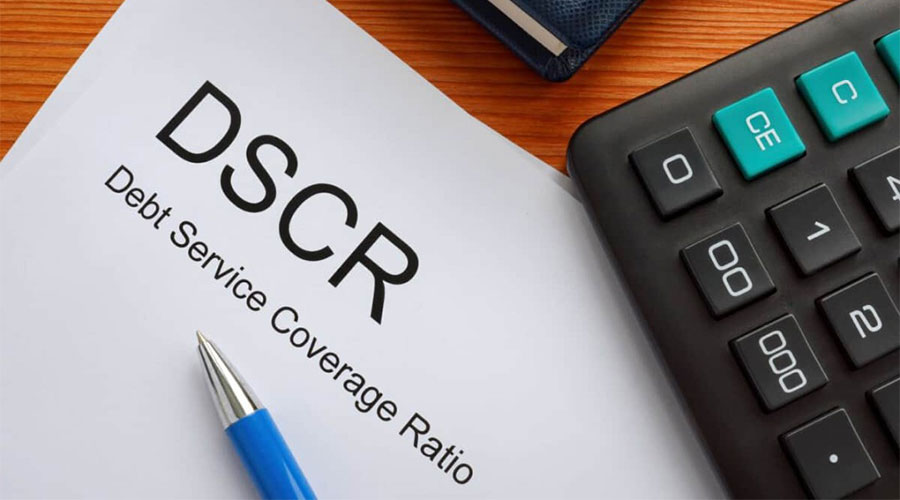
DSCR MORTGAGE PROGRAM
A Debt-Service Coverage Ratio (DSCR) Mortgage is designed for real estate investors and commercial property buyers who want to finance a property based on its income potential rather than their personal financial history. This type of mortgage focuses on the property’s ability to generate sufficient income to cover its mortgage payments, including principal, interest, taxes, and insurance, making it a flexible option for investors who may not have the traditional income documentation required for other loans.
For example, a DSCR of 1.25 indicates that a property generates 25% more income than necessary to cover its debt obligations, while a DSCR of 0.85 suggests that the property generates slightly less income than needed to fully cover its debt service. Lenders typically prefer properties with a DSCR of 1.0 or higher, indicating that the property can at least meet its debt obligations.
- Income-Based Approval: The loan approval is based on the property’s ability to generate income, rather than the borrower’s personal income or tax returns. This is ideal for investors who may not have conventional income documentation or have complex financial situations.
- Flexible Financing for Investors: The DSCR Mortgage is an excellent option for real estate investors looking to purchase or refinance income-generating properties, such as rental homes, apartment buildings, or commercial properties.
- Easier Qualification: Since the focus is on the property’s performance, borrowers with lower personal credit scores or limited income verification may still qualify for the loan if the property has a strong DSCR.
- Higher Loan Amounts: Investors can potentially qualify for larger loan amounts if the property generates significant income, enabling them to finance higher-value properties.
To qualify for a DSCR Mortgage, lenders typically look at the following criteria:
- Debt-Service Coverage Ratio (DSCR): The primary factor in approval is the DSCR, which is calculated by dividing the property’s net operating income (NOI) by its total debt service. Lenders often require a minimum DSCR of 1.0, though some may consider properties with a DSCR as low as 0.85 under specific conditions.
- Property Income Documentation: You’ll need to provide documentation of the property’s income, such as rental agreements, financial statements, and expense reports. The stronger the property’s cash flow, the more favorable the loan terms may be.
- Property Type: Eligible properties typically include income-generating residential properties (such as single-family homes, duplexes, and multi-family units), as well as commercial real estate (such as office buildings, retail spaces, and industrial properties).
- Credit Score: While personal income is not the focus of a DSCR Mortgage, many lenders still consider the borrower’s credit score. A higher credit score can improve your chances of securing favorable loan terms.
- Down Payment: Down payment requirements can vary but typically range from 20% to 30% of the property’s purchase price. The exact amount may depend on the DSCR and other financial factors.
- Property Location and Condition: Lenders may evaluate the property’s location and condition as part of their risk assessment. Properties in desirable areas with strong rental markets are often seen as lower risk.
- Prequalification: Begin the process by providing information about the property’s income and expenses. We’ll calculate the DSCR and determine whether it meets the lender’s requirements for loan approval.
- Loan Application: Once prequalified, you’ll complete the loan application, providing detailed documentation of the property’s income, expenses, and other financials. Our team will guide you through the paperwork and gather the necessary documents.
- Property Appraisal: An appraisal will be conducted to assess the property’s value and its potential income generation. This step is crucial in determining the loan amount and terms.
- Underwriting: The lender’s underwriting team will review the DSCR, property income, and other factors to ensure the loan meets their guidelines. They’ll assess the risk of the investment based on the property’s financial performance.
- Closing: Once the loan is approved, you’ll move on to the closing process, where you’ll finalize the loan and take ownership or refinance the property. At closing, you’ll provide your down payment and sign all necessary documents.
The DSCR Mortgage Program is ideal if you:
- Are a real estate investor seeking to purchase or refinance income-generating properties.
- Want to qualify for a mortgage based on the property’s income rather than your personal financial situation.
- Have a property with strong cash flow and a solid Debt-Service Coverage Ratio.
This program offers flexibility and financing options tailored to real estate investors who may not meet the traditional income requirements of conventional loans. Whether you’re looking to expand your rental portfolio, invest in commercial real estate, or refinance an existing property, the DSCR Mortgage could be the perfect solution.
Let Top7 Mortgage Help You
At Top7 Mortgage, we specialize in helping investors find the best mortgage options for their unique situations. Contact us today to learn more about how the DSCR Mortgage Program can help you achieve your real estate investment goals.
Joining Over 800,000 Students Enjoying Avada Education now
Become Part of Avada University to Further Your Career.

DSCR MORTGAGE PROGRAM
A Debt-Service Coverage Ratio (DSCR) Mortgage is designed for real estate investors and commercial property buyers who want to finance a property based on its income potential rather than their personal financial history. This type of mortgage focuses on the property’s ability to generate sufficient income to cover its mortgage payments, including principal, interest, taxes, and insurance, making it a flexible option for investors who may not have the traditional income documentation required for other loans.
For example, a DSCR of 1.25 indicates that a property generates 25% more income than necessary to cover its debt obligations, while a DSCR of 0.85 suggests that the property generates slightly less income than needed to fully cover its debt service. Lenders typically prefer properties with a DSCR of 1.0 or higher, indicating that the property can at least meet its debt obligations.
- Income-Based Approval: The loan approval is based on the property’s ability to generate income, rather than the borrower’s personal income or tax returns. This is ideal for investors who may not have conventional income documentation or have complex financial situations.
- Flexible Financing for Investors: The DSCR Mortgage is an excellent option for real estate investors looking to purchase or refinance income-generating properties, such as rental homes, apartment buildings, or commercial properties.
- Easier Qualification: Since the focus is on the property’s performance, borrowers with lower personal credit scores or limited income verification may still qualify for the loan if the property has a strong DSCR.
- Higher Loan Amounts: Investors can potentially qualify for larger loan amounts if the property generates significant income, enabling them to finance higher-value properties.
To qualify for a DSCR Mortgage, lenders typically look at the following criteria:
- Debt-Service Coverage Ratio (DSCR): The primary factor in approval is the DSCR, which is calculated by dividing the property’s net operating income (NOI) by its total debt service. Lenders often require a minimum DSCR of 1.0, though some may consider properties with a DSCR as low as 0.85 under specific conditions.
- Property Income Documentation: You’ll need to provide documentation of the property’s income, such as rental agreements, financial statements, and expense reports. The stronger the property’s cash flow, the more favorable the loan terms may be.
- Property Type: Eligible properties typically include income-generating residential properties (such as single-family homes, duplexes, and multi-family units), as well as commercial real estate (such as office buildings, retail spaces, and industrial properties).
- Credit Score: While personal income is not the focus of a DSCR Mortgage, many lenders still consider the borrower’s credit score. A higher credit score can improve your chances of securing favorable loan terms.
- Down Payment: Down payment requirements can vary but typically range from 20% to 30% of the property’s purchase price. The exact amount may depend on the DSCR and other financial factors.
- Property Location and Condition: Lenders may evaluate the property’s location and condition as part of their risk assessment. Properties in desirable areas with strong rental markets are often seen as lower risk.
- Prequalification: Begin the process by providing information about the property’s income and expenses. We’ll calculate the DSCR and determine whether it meets the lender’s requirements for loan approval.
- Loan Application: Once prequalified, you’ll complete the loan application, providing detailed documentation of the property’s income, expenses, and other financials. Our team will guide you through the paperwork and gather the necessary documents.
- Property Appraisal: An appraisal will be conducted to assess the property’s value and its potential income generation. This step is crucial in determining the loan amount and terms.
- Underwriting: The lender’s underwriting team will review the DSCR, property income, and other factors to ensure the loan meets their guidelines. They’ll assess the risk of the investment based on the property’s financial performance.
- Closing: Once the loan is approved, you’ll move on to the closing process, where you’ll finalize the loan and take ownership or refinance the property. At closing, you’ll provide your down payment and sign all necessary documents.
The DSCR Mortgage Program is ideal if you:
- Are a real estate investor seeking to purchase or refinance income-generating properties.
- Want to qualify for a mortgage based on the property’s income rather than your personal financial situation.
- Have a property with strong cash flow and a solid Debt-Service Coverage Ratio.
This program offers flexibility and financing options tailored to real estate investors who may not meet the traditional income requirements of conventional loans. Whether you’re looking to expand your rental portfolio, invest in commercial real estate, or refinance an existing property, the DSCR Mortgage could be the perfect solution.
Let Top7 Mortgage Help You
At Top7 Mortgage, we specialize in helping investors find the best mortgage options for their unique situations. Contact us today to learn more about how the DSCR Mortgage Program can help you achieve your real estate investment goals.
Joining Over 800,000 Students Enjoying Avada Education now
Become Part of Avada University to Further Your Career.
-
First-Time Homebuyer Guide to MortgagesMarch 15th, 2016
-
The Ultimate Guide to Home Mortgage RefinancingOctober 1st, 2024
-
The Loan ProcessOctober 18th, 2024
-
First-Time Homebuyer Guide to MortgagesMarch 15th, 2016
-
The Ultimate Guide to Home Mortgage RefinancingOctober 1st, 2024
-
The Loan ProcessOctober 18th, 2024
- No comments have been published yet.






